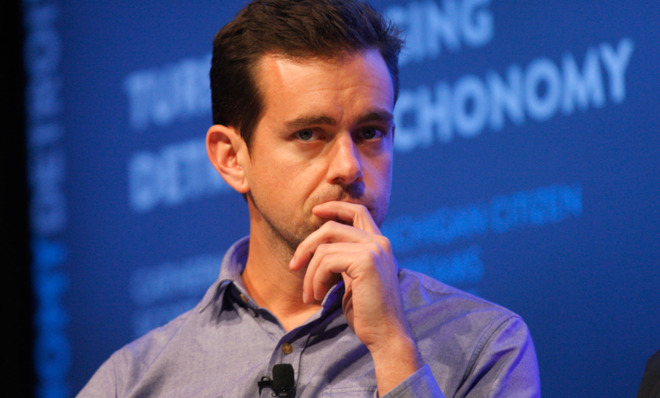One of Twitter's masterminds won't be getting rich off Twitter
Nick Bilton's new book doesn't paint Twitter co-founder Jack Dorsey in a very flattering light

A free daily email with the biggest news stories of the day – and the best features from TheWeek.com
You are now subscribed
Your newsletter sign-up was successful
The New York Times today published a lengthy excerpt from lead technology writer Nick Bilton's new book about Twitter's origin story, Hatching Twitter: A True Story of Money, Power, Friendship, and Betrayal. It's a thrilling read that certainly doesn't skimp on juicy morsels, and it couldn't come at a better time, with Twitter galloping toward an initial public offering that could value the company at upwards of $16 billion.
Shortly before the social network's inception, for example, co-founder Jack Dorsey was a 29-year-old New York University dropout with a nose ring who was turned down for a job at Camper — the shoe company.
Other nuggets include:
The Week
Escape your echo chamber. Get the facts behind the news, plus analysis from multiple perspectives.

Sign up for The Week's Free Newsletters
From our morning news briefing to a weekly Good News Newsletter, get the best of The Week delivered directly to your inbox.
From our morning news briefing to a weekly Good News Newsletter, get the best of The Week delivered directly to your inbox.
- "Friendstalker" was an early candidate for a company name.
- Co-founder Ev Williams raged at Dorsey for enrolling in fashion classes and leaving work at 6 p.m. every night. ("You can either be a dressmaker or the C.E.O. of Twitter," Williams said to Dorsey. "But you can't be both.")
- And, at one point, Barbara Walters played a role in pitting its founders against one another.
But perhaps the most fascinating revelation involves our old narrative friends deception and betrayal. Bilton notes that in addition to the trio of Dorsey, Williams, and Biz Stone, there was in fact a little-known fourth co-founder: Noah Glass, who at the time was one of Dorsey's closest friends.
Glass would play a vital role conceptualizing a key component of Twitter's DNA. When Dorsey came to Glass with an idea for a bare-bones platform that allowed people to broadcast "the simplest details about themselves — like 'going to the park,' 'in bed,' and so forth,'" he wasn't interested, and claimed the idea sounded too much like an AIM away message.
It was reportedly Glass who then came up with the idea that would inevitably prove Twitter indispensable:
As he listened to Dorsey talk, Glass would later recall, he stared out the window, thinking about his failing marriage and how alone he felt. Then he had an epiphany. This status thing wasn't just about sharing what kind of music you were listening to or where you were, he thought. It could be a conversation. It wasn't about reporting; it was about connecting. There could be a real business in that. He would certainly like such a service: His nights alone in his apartment, alone in his office, alone in his car, could feel less alone with a steady stream of conversation percolating online. The two brainstormed for a while longer, and as Dorsey staggered out of the car to go home, Glass said, "Let's talk to Ev and the others about it tomorrow." [New York Times]
So where is Glass now? According to Bilton, Dorsey apparently hatched an elaborate plot to force Glass out of the company just as the "Twittr" project (as it was then called) was gaining momentum. Sources say that Dorsey made it appear as if Williams was the one who wanted Glass out, while Dorsey would feign ignorance about his friend's departure. Aaron Sorkin couldn't have written it better himself.
A free daily email with the biggest news stories of the day – and the best features from TheWeek.com
"Perhaps it was because he sensed vulnerability or perhaps it was because Glass was the only person who could rightly insist that the status updater was not Dorsey's idea alone," writes Bilton. Either way, Glass was soon forced out, Twitter eventually became the go-to platform for celebrities and presidential candidates, and the rest is history.
"Dorsey will make $400 million to $500 million when Twitter goes public," writes Bilton. "Glass stands to make about as much as Dorsey's secretary at Square."
-
 How to Get to Heaven from Belfast: a ‘highly entertaining ride’
How to Get to Heaven from Belfast: a ‘highly entertaining ride’The Week Recommends Mystery-comedy from the creator of Derry Girls should be ‘your new binge-watch’
-
 The 8 best TV shows of the 1960s
The 8 best TV shows of the 1960sThe standout shows of this decade take viewers from outer space to the Wild West
-
 Microdramas are booming
Microdramas are boomingUnder the radar Scroll to watch a whole movie